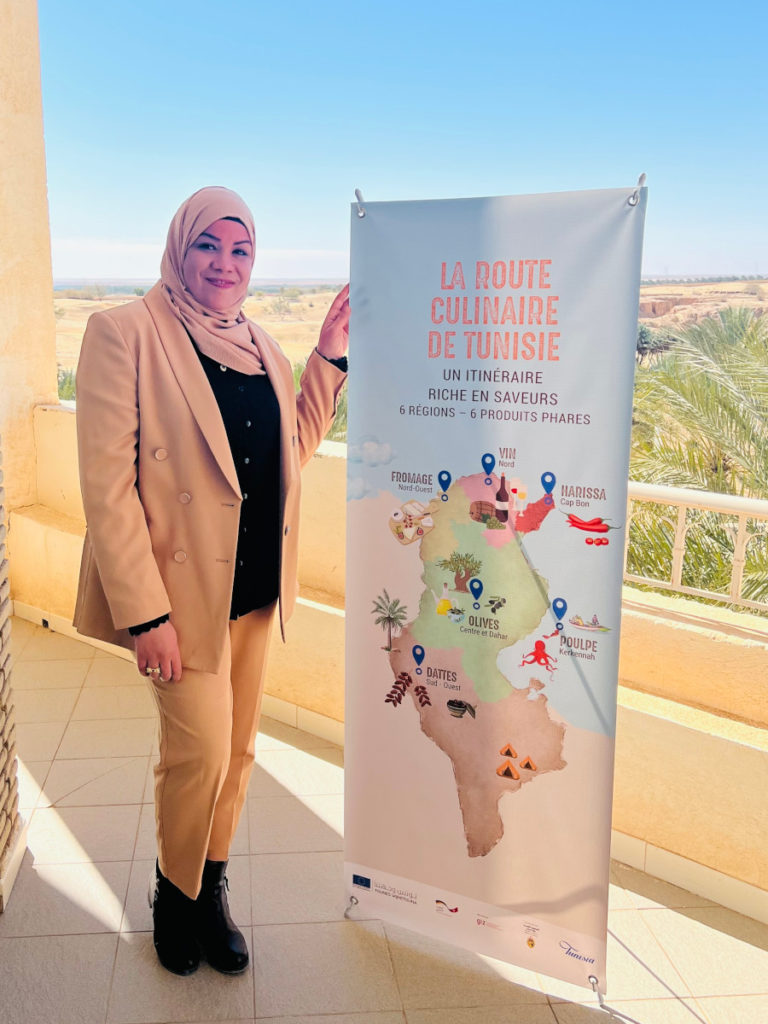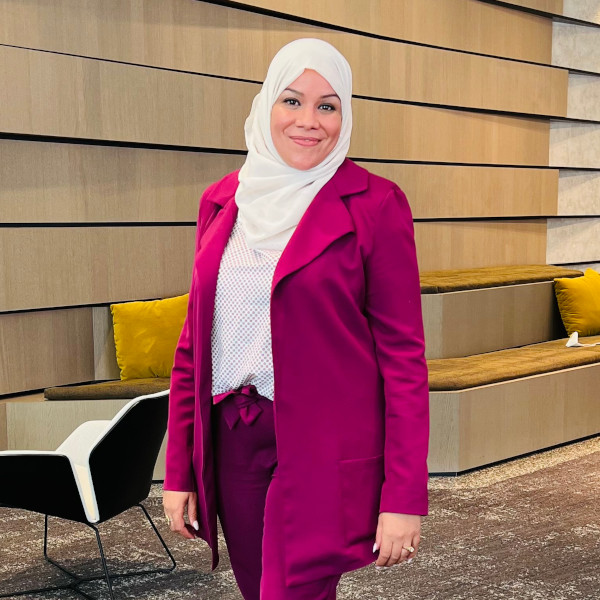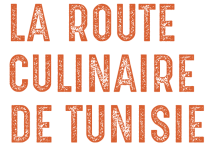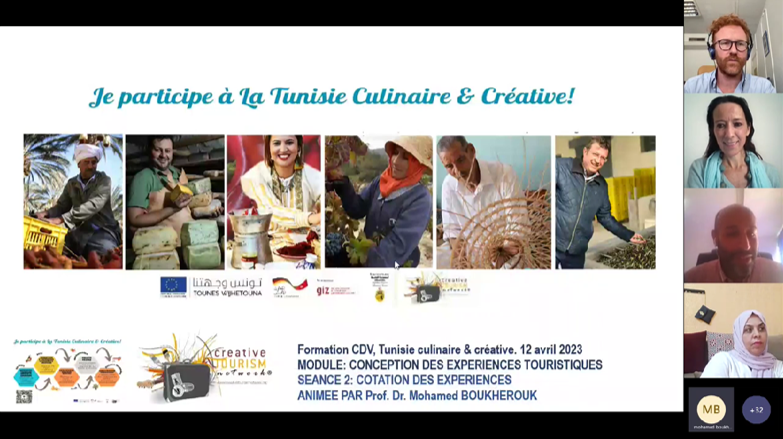The Culinary Route will help reposition the image of southern Tunisia as a mid- to high-end multi-product destination.
The Culinary Road of Tunisia is the road of all those, professionals and enthusiasts, who take part and share their experiences and points of view. In the South-West region, we met Takwa Hadden Bouazizi, Director of the Tozeur Business Center, who offered us her personal and entrepreneurial vision of the potential this project offers the region.
What are the assets of Tozeur and its region?
I’d definitely say: its great history.
According to several historians, the origin of the name “Tozeur” is Egyptian in the form of “Tes-Hor”, meaning “city of the sun”. The region has a long history of settlement, dating back to the prehistoric Capsian civilization. It was an active center of trans-Saharan caravan trade, frequented by the Carthaginians. The Romans settled here in 33 BC. With the arrival of Islam, it became “Bled El Hadher” or City of Civilization. During the Middle Ages, the famous Arab geographer Al-Bakri named the Tozeur region “the land of Qastiliya”.
Tozeur was a hotbed of intellectual activity. She played an important role in the propagation and revival of Malekism and Ghazalian thought. Tozeur was also the city of science, with Ibn Chabbat, who died in 1282, inventing the water distribution system that has worked in the region for centuries. Tozeur was later a city of the arts with the great poet Abou El Kacem Chebbi, a poet of freedom and revolt against ignorance and intolerance.
The town’s favorable geographical position (notably on the Algerian border) enables it to diversify production and encourage partnerships. The governorate is renowned for the superior quality of its dates, mainly the “Deglet Nour” variety.
Alongside agriculture, the region’s economy is essentially based on the tourism sector. Tozeur boasts a diversified tourist infrastructure with a variety of accommodation units and attractive leisure facilities, including the world-renowned Dar Chraït museum, an immense palm grove, mountain oases and waterfalls. All delegations in the Tozeur governorate are classified as priority regional development zones, and benefit from financial and tax incentives. I also see a number of promising niches in which we have the assets to position ourselves: ecotourism, leisure tourism, health tourism, cultural tourism and Saharan and oasis tourism.
What can a project like La Route Culinaire bring to Tozeur and the surrounding region?
I see many long-term benefits: improving the competitiveness and sustainability of tourism development in southern Tunisia, improving the profitability of the tourism sector, and repositioning the image of southern Tunisia as a mid- to high-end multi-product destination.
It will support tourism players, encouraging them to develop cultural products and/or services, supervising them to improve the quality of their services, and raising their awareness of sustainable resource management.
It would be interesting to find financial partners willing to support the best projects presenting Saharan, cultural, historical and ecological tourism products, especially during their start-up phase.
In particular, I’m looking forward to training and technical assistance programs to overcome both the lack of know-how in the fields of organization, management and promotion, and the lack of know-how in setting up and marketing attractive, differentiating tourism products (Saharan products, cultural and historical discovery, or ecotourism).

What synergies can be created between the Tozeur Business Center, which you manage, and projects like this one?
The Tozeur business center collaborates with its partners in particular in activities aimed at offering the services needed by promoters and investors to launch or develop their projects, and in particular :
- Provide information to business ideas and projects, promoters and investors on business start-up procedures, benefits and incentives available to them, possible locations and promising investment and partnership opportunities;
- Support promoters in the various phases of starting up and monitoring the realization of their projects, particularly in the phase of drawing up feasibility studies and finalizing the financing plan;
- If necessary, provide promoters and investors with offices equipped with communications facilities and basic services, free of charge;
- Organize seminars for promoters and investors to inform them about the region’s comparative advantages.
What advice would you give to project owners?
- Take advantage of existing support opportunities with programs like La Route Culinaire ;
- Look for innovative ideas and create original and attractive initiatives;
- Don’t be afraid of failure, which offers many avenues of learning and experience;
- Stay true to your values and be passionate about your entrepreneurial adventure;
- Be the relevant solution to a real-life problem and forge lasting partnerships upstream and downstream in your business;
- Prepare your business plan carefully, define your added value, and carry out a proper market study with the help of support structures and programs;
- Make yourself known;
- Expand your international networks!
Finally, a more personal question: what is your favorite Tunisian culinary specialty?
The choice is difficult…!
On the savory side, I’d say couscous, leblabi, tajine, Mechweya salad, Mlewi and Metabgua from Djerid, barkoukch from Djerid, mloukhya from eljerid, mhamesa from eljerid.
And on the sweet side: Makroudh, Kaak Warka, Balklawa, Rfissa, Droo, Basbous, Youyou and Samssa.







